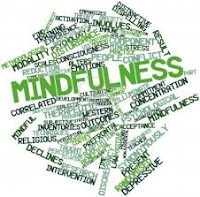The question is this:
"What is the question at the centre of this organisation, around which everything else revolves?"
It's not a mission statement, nor a list of
values all beginning with the letter "P". Yes, mission and values
matter, but this is a question. What is it about questions which propel our
thinking onward, keeping us curious? I wonder.
 |
| Copernicus - wondering whether to let the world know it wasn't quite where it thought it was. |
Fourteen hundred years!
That's longer than it takes to get a dentist appointment.
Then Polish mathematician-astronomer Nicolaus Copernicus observed the earth in fact rotated daily on its axis and revolved yearly around the sun. I expect 1,400 years of a skewed understanding of the solar system was hard wired in people's thinking. They believed what had always just been believed. Imagine daring to explain this new 'heliocentric' discovery to the King and Pope, and all without the aid of PowerPoint. Copernicus was not popular. Change wasn't all the rage in 1543. But his courage to challenge assumptions opened up a whole new way of understanding the system within which we live.
 Why bother with the question? Because I am
animated about something. In the last decade the number of young people
nationally who are prescribed anti-depressants has doubled (source: World
Health Organisation, 2016). Self-harm, anxiety, stress and depression continue
to escalate and the thing is, nobody is surprised. This bothers me.
Why bother with the question? Because I am
animated about something. In the last decade the number of young people
nationally who are prescribed anti-depressants has doubled (source: World
Health Organisation, 2016). Self-harm, anxiety, stress and depression continue
to escalate and the thing is, nobody is surprised. This bothers me.
It bothers
me that the mental health of this rising generation is spinning so dangerously
out of control. Imagine the impact on our future workforce. Our social systems
are doing loop-the-loops, dancing madly around deeply-held assumptions that evidently
are not enriching the well-being of young people. Assumptions about assessments
and measurements and standards. Some helpful, but not all.
Lifespace Trust works to see the "mental wealth" of the next generation released, because the challenges on our tiny spinning planet are very real:
Climate change and finite resources; political unrest; international tensions and terrorism. Time is precious. X-Factor doesn’t have the answer.
Young people are not just younger, they are also newer with insights adults haven't considered. I wonder, in our information-saturated society, are we giving them the time, space and skills to think? To shift from “having thoughts” (noun) to knowing how “to think” (verb) for themselves. Has knowledge based on the past replaced the wisdom we need for the future? It would have been easier for Copernicus to keep quiet. Let the planets do their thing. Shrug his shoulders and move on.
Jotted at the bottom of my piece of paper, in
hurried scrawl, is a response to my question:
"How else can we help every young person
connect to their highest potential?" Now, what would that be like?

















